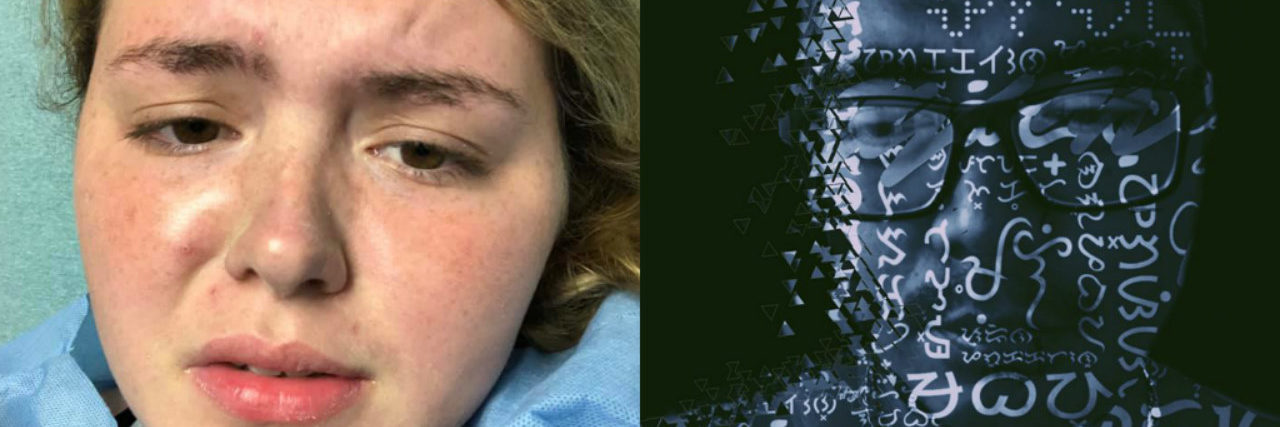13 Photos That Show the Aftermath of Losing a Friend When You Have BPD
In the borderline personality disorder (BPD) community, the term “favorite person” (or “FP” for short) is used to refer to that person in your life you feel like you can’t live without — someone you might have an intense emotional dependence on.
Unfortunately, one of the nine classic symptoms of BPD is having unstable interpersonal relationships, so it’s common for people with BPD to either cut off contact with their loved ones or have people walk out of their lives. This dynamic can make losing a favorite person incredibly painful.
Mighty contributor Erica Chau described losing her favorite person in this way:
So what is it like to lose your favorite person?
It’s the worst thing ever.
It’s losing the ability to breathe. I can’t breathe. I feel like I am getting the life squeezed out of me and it won’t let go, and I’m getting squeezed from all sides. I miss him so much. He’s my home. I just want to go home.
If you can relate to Chau’s experience, you’re not alone. We have a BPD community full of folks who understand. To connect with them, post a Thought or Question on The Mighty with the hashtag #BorderlinePersonalityDisorder.
We wanted to shed a light on the reality of losing a favorite person, so we turned to our community. We asked them to share a photo that highlights what it feels like to lose a favorite person. In addition to their photos, we asked them to share tips for coping with losing a favorite person. If you live with BPD and are struggling with the impact of losing a friend, we hope their insight can help you move through your grief. Read what they said below.
Here are 13 photos that show the aftermath of losing a favorite person when you have BPD:
1. “Despair. Empty. Ugly. Unlovable. Couldn’t stand to look at myself in the mirror… This is a photo of myself, two weeks after my first serious long-term relationship ended. He was my FP. And he took my best friend with him. And I am forever afraid of my now-fiance leaving me to try to be with my best friend.” — Becca M.
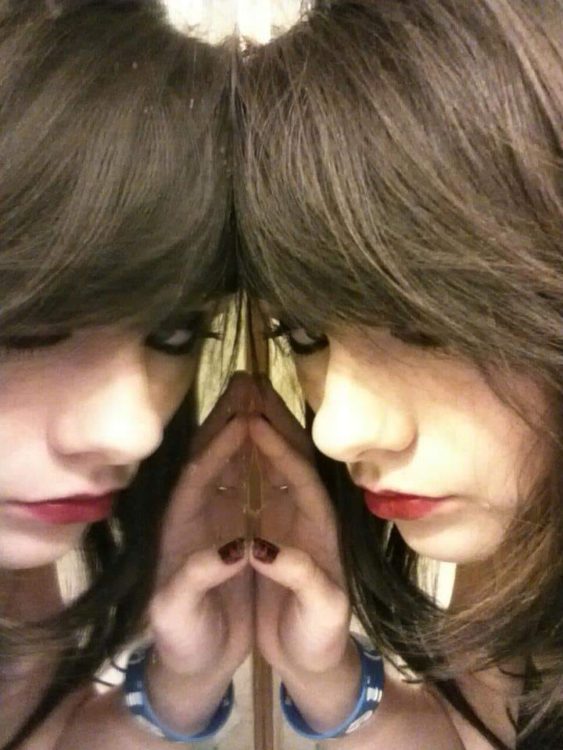
2. “My profile pic says it. Digitally written all over the face is a baybayin script (an ancient Filipino script) that has my FP’s name. And all the words ‘I feel.’ — George S.
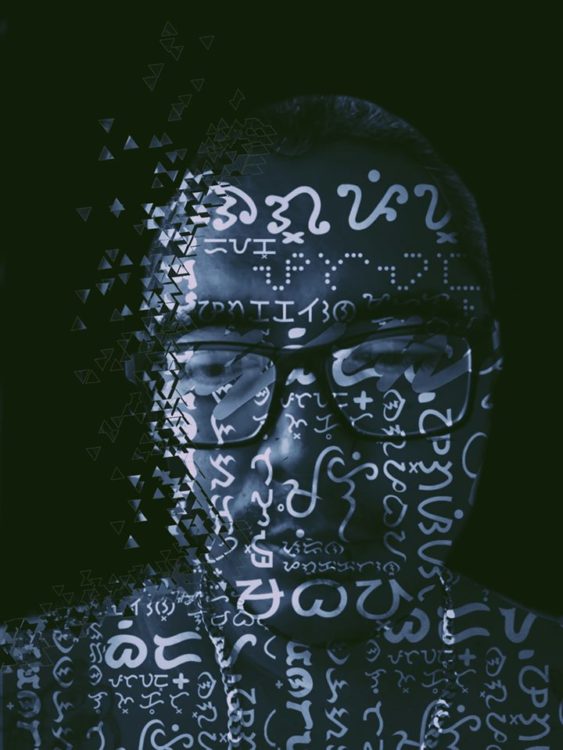
3. “This is a terrible picture of me, but this is me in the ER, having attempted suicide after losing my ‘favorite person.’ There are no words to describe the pain I felt. I felt so abandoned, rejected and alone. I couldn’t see a reason to live after such an enormous loss.” — Lauren C.
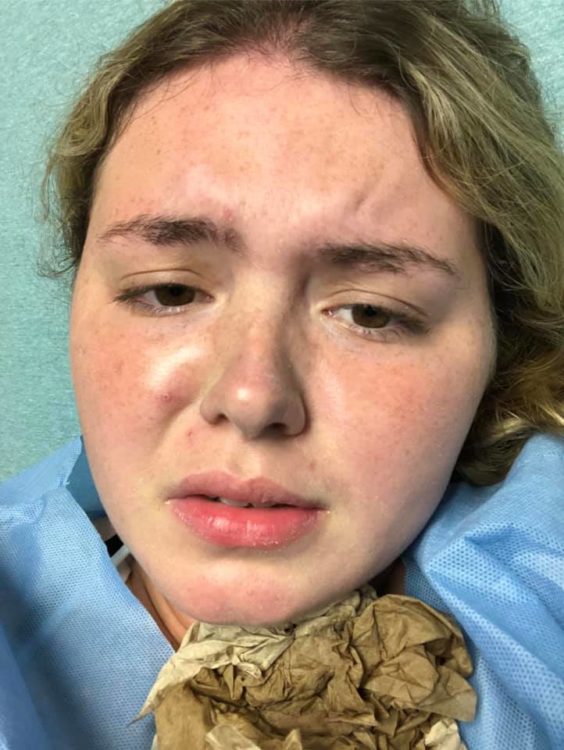
4. “Got this after a former FP left and it hurt like hell. He told me to never give up and to never stop fighting, so I finally got my semicolon.” — Mo L.
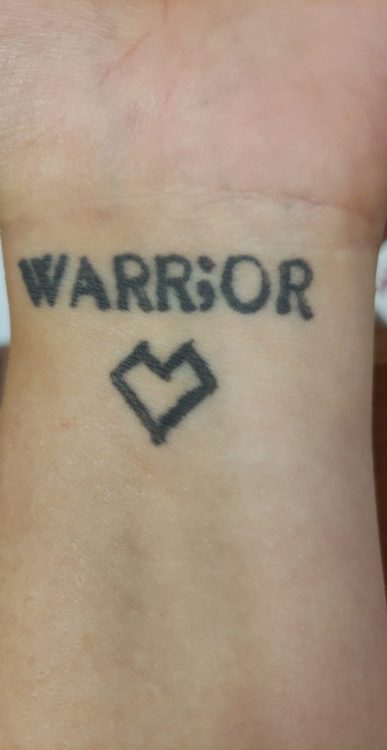
5. “Abandoned.” — Finn B.
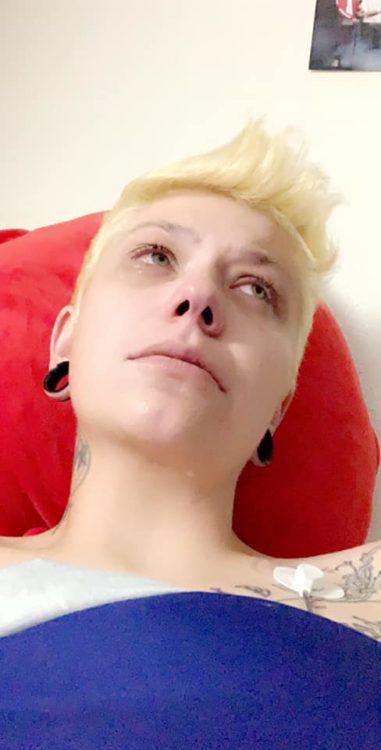
6. “Exactly like this.” — Beau B.
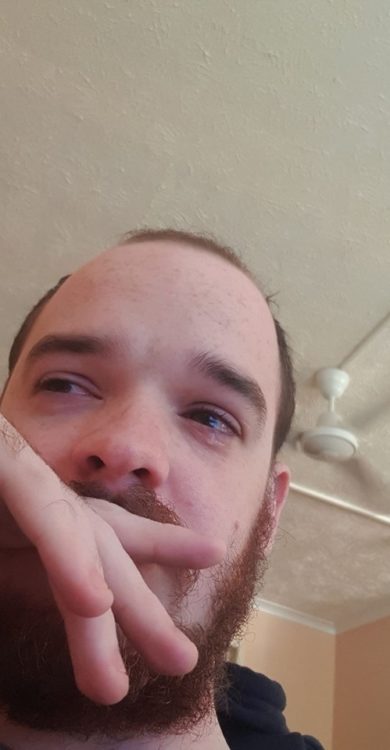
7. “Being that I just got broken up with last night… [I’m] just super sad and angry and I can’t process everything at once because I feel like I’ll lose control. So, just grieving.” — Ally C.
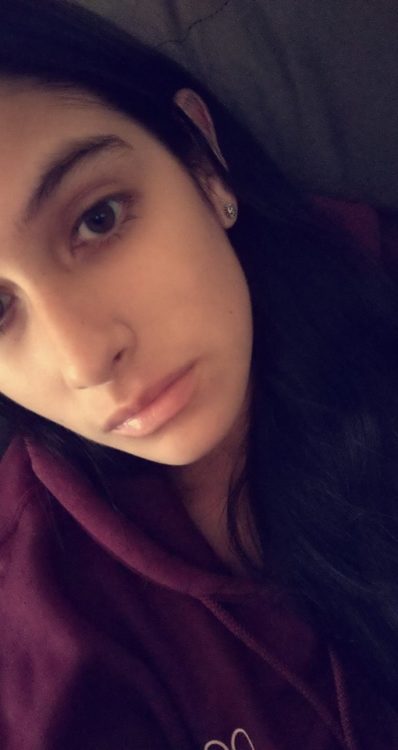
8. “I felt like I was completely alone, abandoned, betrayed, unloved… like there was something wrong with me… like I wasn’t good enough. It was so difficult, but so worth the struggle. I am better for it!” — Megan N.
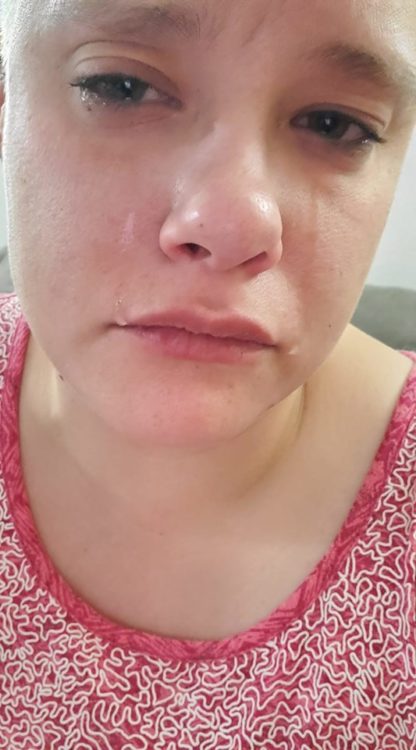
9. “A photo of me from when I was younger. Losing an FP to me, was the end of my universe. I felt like a child left without their parent. It brings all the emotions of being abandoned together with memories of childhood. That gut feeling that you can’t live without them. It’s like the first day of school, and going back to an empty house. It’s losing a part of yourself. You feel like you can’t do this alone and being without them breaks every part of you, because you have to learn how to live again, you have to learn how to cope on your own. It feels like adulthood being forced into a child.” — Alex S.
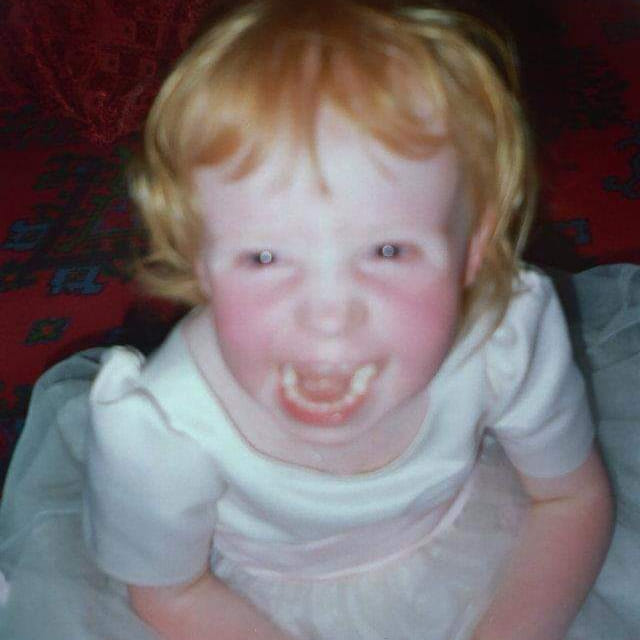
10. “I painted it…” — Lina S.
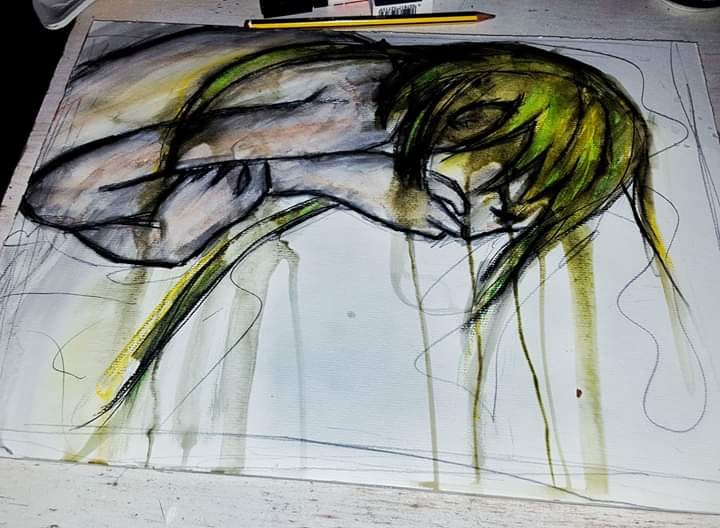
11. “I was so hurt after losing my girlfriend at the time who was also my favorite person. My mental health at this point was a hot mess and I don’t blame her for leaving me. I was alone for the first time in years. The caption on this photo on Instagram was, ‘I am better than this and better than you.’ Thankfully after a good eight-month break and my taking action on my mental health, my girlfriend and I got back together and she became my wife. I’m so grateful to have her back in my life.” — James S.
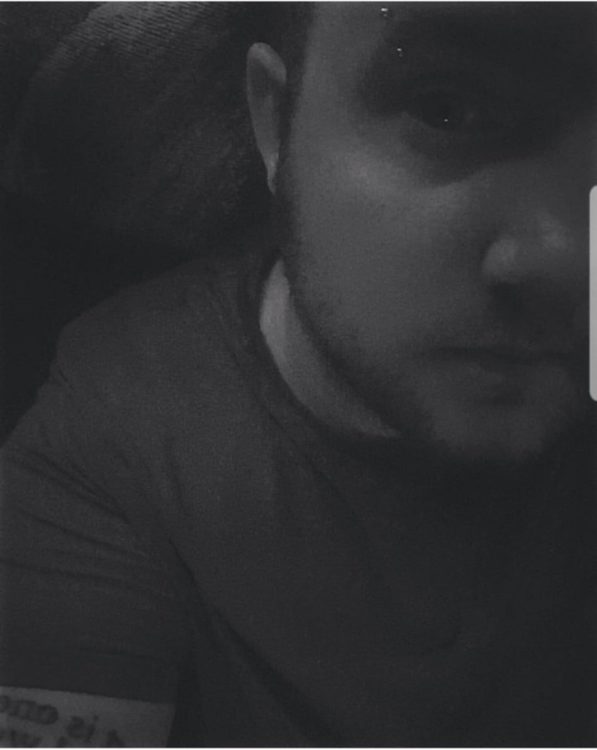
12. “I had the same favorite person for over 10 years and she stopped talking to me. I’ve never been more heartbroken. I’ve cried and cried for her. I took this series of pictures of me crying and smoking the cannabis she left at my house. I impulsively sent them to her during the episode. Losing your favorite person feels like losing everything. In the moment it feels like nothing else matters. It feels like you can’t breathe. Like you can’t feel anything. And it makes you push the person away even more.” — Danielle L.
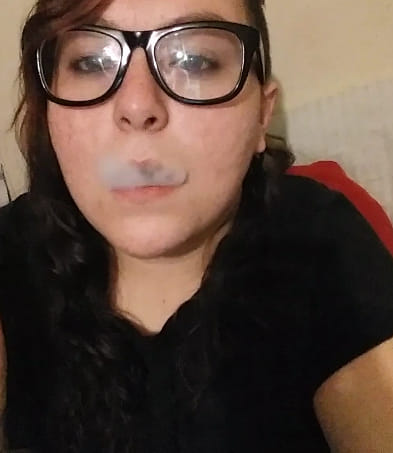
13. “I took this picture of myself one afternoon after I got home from the outpatient day hospital program I was attending. I had been hospitalized twice within four months after my husband asked to separate, and the day hospital changed my life. But I didn’t know yet when I took this picture that everything would be OK. I still thought about suicide every day. Many times during the day, I wanted to die. The agony of losing my husband was so painful, sometimes I thought I couldn’t stand one more moment.” — Crystal W.

If you can relate to the photos and descriptions shared above, you’re not alone. While it’s important to show the reality of these painful experiences, it’s also important to talk about how to get through them. Below we’ve shared some tips from our community to help you cope.
1. Allow Yourself to Grieve
The first thing our community recommended was giving yourself space to grieve. Don’t try to ignore what you’re feeling — feel all the feels! Feeling leads to healing.
“I keep her picture on my nightstand and say goodnight to her every night. Allow yourself to grieve. It’s OK to be sad when losing someone you love. Cherish the happy moments you had together.” — Alicia Y.
2. Get Professional Support
Experiencing a loss of any kind is difficult to go through alone. Reach out for professional support, especially if you find yourself struggling to get through the day or experiencing suicidal thoughts.
“My FP of 10 years ended our friendship suddenly almost two years ago. I got through in large part thanks to professional help. A couple things that really helped me cope were writing a letter to her that explained my feelings and making a playlist of songs to help me express the pain I felt.” — Megan G.
“My therapist really helped me get through it. So if you’re not in therapy already, maybe seeking out help with a therapist is one of the best ways. It’s healthier than latching onto other people and they can teach you proper coping skills so you don’t turn to alcohol or drugs like I originally did.” — James S.
3. “Write to” Your Favorite Person in a Journal
Sometimes you can’t talk to your favorite person anymore. Maybe they’ve stopped replying to you, maybe you deleted their contact information after cutting ties or maybe they are no longer living. Whatever your situation may be, sometimes it can be helpful to write in a journal as if you were talking to them. This may help you transition from talking all the time to not at all.
“I lost my best friend to suicide. I wrote to him in a journal for a while and still sometimes do. It’s hard to be in a routine of talking to someone you love every day and then all of a sudden transitioning through that. This helped me transition and cope and also helped me still feel like he was listening somehow. I also keep a picture of him.” — Kellyann N.
4. Cultivate More Than One Friendship
Bringing all of your struggles to one person can be a lot for one person to handle by themselves. Practice cultivating more than one friendship, and pay attention to the give and take of your relationships. Are you giving more in your friendships — or are you taking more? Healthy relationships are a balance of both.
“Finding a group of friends to bond with instead of just one. It was devastating and difficult to move forward, but I found that having the group was so much more supportive for me. In fact, I wondered why I had allowed myself to close myself off to all but one person before. I still have an FP today, but instead of one I have four and they are all equally awesome.” — Sami S.
5. Find People Who Understand
There’s nothing like talking to people who really “get it.” Join a support group in-person or online. To connect with members of our Mighty BPD community, download our free app and post with the hashtag #BorderlinePersonalityDisorder.
“Find a support group. Connecting with people who are going through the same thing and can truly understand what it feels like is the best feeling ever.” — Audra C.
6. Practice Radical Acceptance
One of the most important dialectical behavior therapy (DBT) skills to practice in moments of loss is radical acceptance. Radical acceptance means accepting present moment without judgment. It doesn’t mean we have to like it, we simply have to acknowledge it without judgment. To learn more about radical acceptance, head here.
“I remembered DBT radical acceptance technique. I could not change the fact they no longer wanted contact with me. I could only control the way I dealt with it, and I chose to reach out to those who did want to know me.” — Nynaeve B.
7. Give It Time
One of the best remedies for any kind of heartbreak is time. This might be frustrating to hear, but things do get better as time goes on. Give yourself the space to feel, and be patient. Healing takes time.
“Time is literally the only thing that helps.” — Gemma H.
“When I lost my FP (7+ years), it absolutely devastated me. It took me many, many months to begin to let anyone in again… Time is all that really helps, sadly.” Erika G.
If you’ve ever lost a favorite person or friend due to mental illness, you’re not alone. Reach out for support if you need it, and take care of yourself. You are strong enough to make it through.

